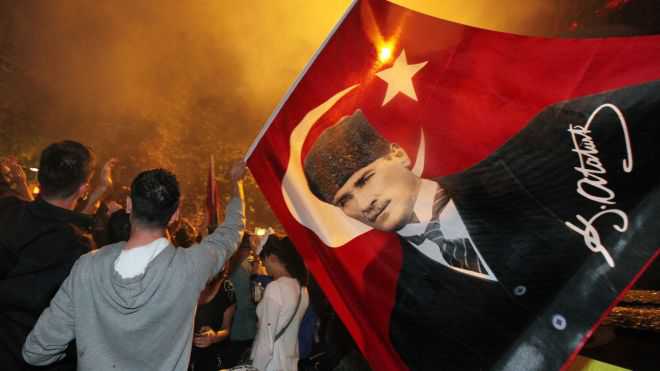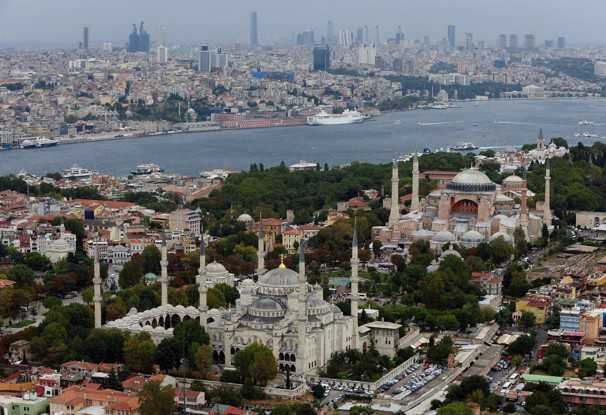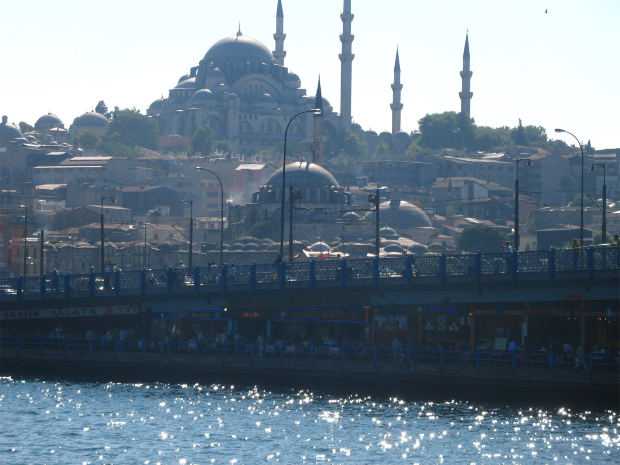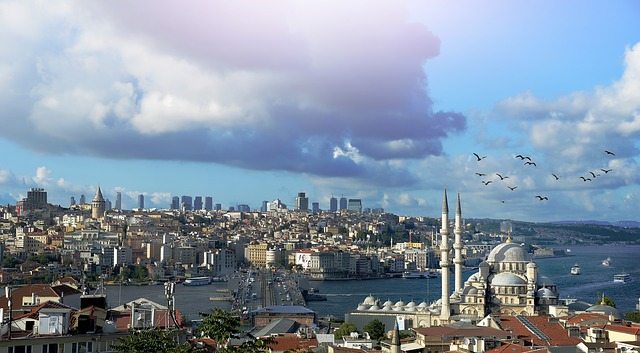By ZEYNO BARAN
August 2, 2008; Page A11
Istanbul
This week’s verdict by Turkey’s Constitutional Court — which rejected an attempt to ban the governing Justice and Development Party (AKP) for undermining the country’s secular foundations — has been hailed by the U.S. and the EU as a great step forward for democracy and rule of law. Fair enough. Banning a party that last year renewed its mandate in office with 47% of the vote would have been a huge setback for Turkey. But that doesn’t mean we should all sigh with relief and conclude that liberal democracy is flourishing under the Islamic-oriented AKP’s rule.
Government surveillance of AK Party critics and leaks to media of personal phone conversations have created a climate of fear. There is concern among some liberals that the country is becoming a police state. The foundation of a healthy democracy — the right to dissent and hold an elected government accountable — is gradually being undermined.
When asked about mass wire-tapping, Minister of Transportation Binali Yildirim gave a Kafkaesque response: “It is not possible to prevent being listened to; the only way is not to talk [on the phone]. If there is nothing illegal in our actions, we should not be concerned about such things.”
Some examples of recent intrusive practices in Turkey include the appearance on YouTube of voice recordings of prominent figures either from the military or antigovernment circles. Several anti-Islamist senior military officers have reportedly resigned over the past few years when faced with the possibility that their private conversations would be leaked. The leaks involve some top-secret military documents, so they are also highly illegal and might pose a serious security breach for the NATO alliance.
In this context, several aspects of the so-called Ergenekon trial are worth highlighting. Ergenekon is alleged to be a secret antigovernment organization named after a pre-Islamic Turkish myth. The case involves a network of ultranationalists — including journalists, military, business and civil society leaders — who allegedly have been involved in a range of terror attacks since the early 1990s, and most recently conspired to attempt a coup against the AKP.
The investigation began in June 2007, when over two dozen hand grenades were found in an Istanbul house. The same type of grenade was used in the attacks on the Istanbul offices of the prominent anti-Islamist newspaper Cumhuriyet in 2006. At the time, many believed the attack against the newspaper was carried out by Islamists. Now, according to the prosecution, this and other such attacks were not carried out by Islamists, but by Ergenekon conspirators.
The indictment reads like a Solzhenitsyn novel; it includes private conversations between suspects, who discuss their conversations with prominent figures, such as former president Suleyman Demirel and business tycoon Rahmi Koc. While these do not by themselves make a case, they are highly embarrassing when reprinted on the front pages of major newspapers. The message that many people took from the indictment is that those critical of the government are officially on notice.
The case is built around retired Brig. Gen. Veli Kucuk, an alleged leader of Ergenekon, who is accused of a number of illegal activities, including some of the most shocking crimes in recent Turkish history. Ergenekon conspirators are also accused of planning to murder the current chief of the Turkish military’s general staff, Yasar Buyukanit, Prime Minister Recep Tayyip Erdogan, Nobel Prize-winning author Orhan Pamuk (among others), and of planning attacks on NATO facilities.
Most Turks would welcome the elimination of such furtive armed networks, and the clear restoration of the rule of law. However, the timing of this case, as well as the movie-like aspects of the indictment, have aroused suspicions that the AKP or its supporters are behind a campaign of intimidation — and that they are striking back in the legal arena against the same people who tried to ban the party.
First, the timing. The Istanbul court declared its acceptance of the indictment and released the 2,455 page document on July 25 — the weekend prior to the start of the AKP closure case. While AKP and its supporters claim the two cases are not related, those in opposition see the two closely linked, and point to the headline of the strongly antimilitary daily Taraf the next day: “Founded in 1923, cleansed in 2008” — i.e., it declared the collapse of Mustafa Kemal’s secular Turkish Republic.
Second, the leading opposition paper Cumhuriyet seems to be a key target. The phones of its senior journalists have been tapped, and some conversations deemed anti-AKP leaked to the press — including one involving a readout of an off-the-record conversation between the paper’s U.S. correspondent and members of U.S. Vice President Dick Cheney’s staff. The paper’s senior editor and columnist, Ilhan Selcuk, was arrested in March as a result of the information extracted from his private phone conversations. He is one of the leading figures among the 86 people charged with being a member of a “terrorist organization.”
A third point made by those who managed to go through those 2,455 pages is that the indictment is full of unsubstantiated speculation, and that its attempt to blame all kinds of terror attacks and assassinations on Ergenekon is far-fetched. These include the killing of prominent anti-Islamist scholars and journalists, and what were thought to be Kurdish acts of terror and killings by the Islamist group Hezbullah (unrelated to the Lebanese organization).
The Ergenekon trial has so far raised more questions than answers. If the allegations can be proven, it would be a huge success for the AKP for having the courage to tackle such a horrendous entity. If, however, it turns out to be mostly a show trial, then those concerned about Turkish democracy and rule of law need to reconsider where Turkey is headed.
Ms. Baran, a native of Turkey, is a senior fellow at the Hudson Institute and director of its Center for Eurasian Policy.






